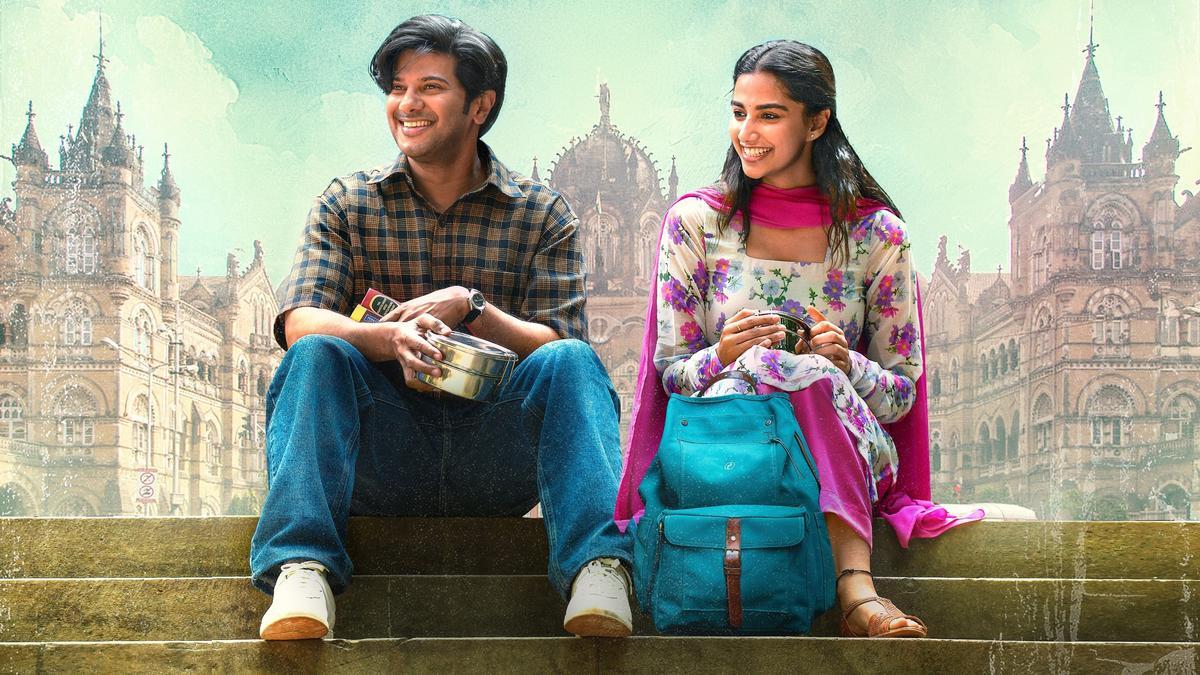
In an exciting blend of drama and intrigue, ‘Lucky Baskhar’, the Telugu cinematic creation helmed by the talented Venky Atluri, takes audiences on a thrilling journey through its narrative prowess. At the heart of the story, Atluri deploys a captivating technique – leading the audience into tense and climactic moments before unveiling the backstory through strategic flashbacks. This storytelling style not only engages viewers but highlights the intricacies of the protagonist, Baskhar, played with unmatched finesse by Dulquer Salmaan.
From the film’s opening moments, the character of Baskhar breaks the fourth wall, speaking directly to the audience and setting the stage for an engaging narrative. The atmospheric backdrop is painstakingly crafted by Banglan’s production design, capturing the essence of a lower-middle-class Bombay neighborhood from 1989-1992. Nimish Ravi’s cinematography skillfully transports viewers to the grey-tinged alleys and cramped spaces of the era, adding authenticity and depth to the storytelling.
Initially, the film unfolds along familiar lines, depicting the struggles of Baskhar as he strives to support his family, including a wife, child, two siblings, and ailing father. Living on the edge of financial abyss, Baskhar is perpetually ensnared by debt, unable to afford even the simplest pleasures. As expected, his circumstances deteriorate further as tensions escalate with moneylenders and familial humiliation. It becomes clear that Baskhar is tempted by the lure of quick, easy money, leading him into the shadowy world of banking fraud.
The parallel narrative focusing on Baskhar’s relationship with his wife Sumathi, portrayed by Meenakshi Chaudhary, adds layers to the plot. Their marriage, founded on mutual support through arduous times, faces new challenges amid the unfolding financial dilemma. Their past romance and familial dynamics are neatly outlined in a musical sequence, sparing the need for extensive exposition. Some family members fit predictable molds, while others, such as the introspective father and perceptive young son, offer unexpected nuances.
Set against a backdrop that allows for creative reinterpretation of historical financial scandals, ‘Lucky Baskhar’ extends creative liberties to depict a banking and trading scam reminiscent of real-life events. Atluri uses this opportunity to craft a gripping tale, weaving in references to stock market manipulation through a character baring resemblance to notorious stockbroker Harshad Mehta, albeit with a fictional twist.
. These elements lend credibility to Baskhar’s initial success in deception, which is partly owed to luck and the absence of modern surveillance technologies.
The midpoint of the movie introduces a pivotal moment, as Baskhar once again addresses the audience directly, underscoring a shift into high stakes and more complex narrative developments. Atluri adeptly accelerates the story into the murky depths of money laundering, exposing the widespread involvement, from bank managers to unwitting small business owners, in an elaborate financial scam.
The script’s simplicity in explaining the modus operandi of these crimes avoids spoon-feeding the audience but ensures clarity, enhancing the transformation of Baskhar from a man of humble means to one defined by his newfound affluence and subsequent arrogance. Meanwhile, Sumathi represents Baskhar’s moral compass, though her influence wavers against the allure of easy riches. The story’s ingenious use of supporting characters prompts Baskhar to reflect on his choices, raising compelling questions about his capacity for redemption.
Dulquer Salmaan delivers a stellar performance, effortlessly embodying the transformation from a relatable middle-class individual to a figure exuding both swagger and stress. The costuming, by Archana Rao, subtly reflects his character’s evolution, with Baskhar’s lavish lifestyle signified by his ostentatious wardrobe and graying hair symbolizing stress. Salmaan masterfully navigates the language barrier, enhancing the nuanced script through expressive performances even in scenes with minimal dialogue.
Meenakshi Chaudhary’s portrayal resonates with authenticity, complementing the robust narrative. Notable performances by supporting actors Rajkumar Kasireddy, Maganti Srikanth, Hyper Aadhi, Ramki, Tinnu Anand, and Sachin Khedekar bolster the storyline, particularly through smaller, impactful interactions highlighting Baskhar’s internal struggle.
GV Prakash Kumar’s score injects vibrancy into the film, though at times it possibly telegraphs impending twists. Maintaining a degree of enigma could have preserved higher suspense during crucial moments.
In conclusion, ‘Lucky Baskhar’ explores themes of morality without overt moralizing, ultimately driving home the crucial lesson of recognizing the limits of ambition and the wisdom of restraint. For audiences fortunate enough to experience it, this film agrees with Baskhar’s own words – a performance well played. Currently captivating audiences in theatres, ‘Lucky Baskhar’ is a testament to the power of adept storytelling and outstanding performances in Telugu cinema.












